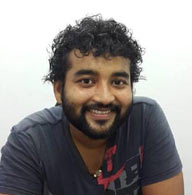Sep
21

Date: September 21, 2022
Time: 9:30 AM ET (New York Time)
Title: Tapestry: A Compressed Sensing Approach to Pooled RT-PCR Testing for COVID-19 Detection
Registration | Full webinar details
Abstract:
Biography:

Dr. Sabyasachi Ghosh received the B.Tech. degree in computer science and engineering from Indian Institute of Technology Kanpur, Kanpur, UP, India in 2008 and the M.S. degree in electrical engineering from University of Southern California, Los Angeles, CA, U.S.A. in 2011. He is currently pursuing the Ph.D. degree in computer science and engineering at Indian Institute of Technology Bombay, Mumbai, MH, India.
He worked as a backend software engineer at Riverbed Technology from 2011 to 2014, and a lead engineer at Shop101 in 2015. He was a Research Assistant at Tata Institute of Fundamental Research in 2016, and at Indian Institute of Technology Bombay from 2016 to 2017.
Dr. Ghosh’s research focuses on developing Group Testing and Compressed Sensing methods for application in novel areas, such as COVID-19 testing and Deep Learning. His broader research interests include Artificial Intelligence, Machine Learning, Reinforcement Learning, and Mathematical Biology.
